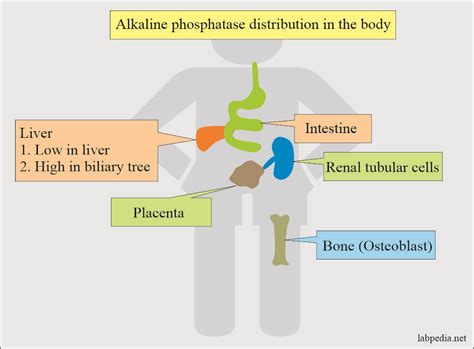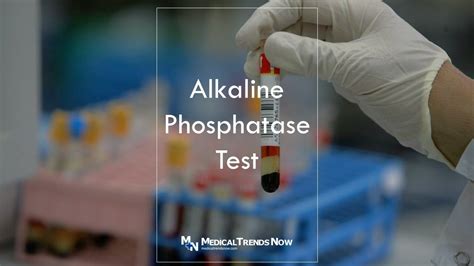Intro
Discover normal alkaline phosphatase levels, understanding enzyme functions, and liver health implications, with insights on bone growth, diagnosis, and treatment of related disorders.
The importance of understanding normal alkaline phosphatase levels cannot be overstated, as this enzyme plays a crucial role in various bodily functions. Alkaline phosphatase is found in high concentrations in the liver, bones, and digestive system, and its levels can indicate the presence of certain health conditions. In this article, we will delve into the world of alkaline phosphatase, exploring its functions, the factors that influence its levels, and the significance of maintaining normal levels.
Alkaline phosphatase is an enzyme that catalyzes the hydrolysis of phosphate esters, which are essential for various cellular processes. The enzyme is produced by the liver, bones, and digestive system, and its levels can be measured in the blood. Elevated or decreased levels of alkaline phosphatase can indicate liver damage, bone disorders, or other health issues. Therefore, it is essential to understand the normal ranges of alkaline phosphatase levels and the factors that can influence them.
The normal range of alkaline phosphatase levels can vary depending on the laboratory and the individual's age, sex, and health status. Generally, the normal range for adults is between 30 and 120 U/L, while for children and adolescents, the range is higher due to bone growth and development. Understanding these normal ranges is crucial for diagnosing and monitoring health conditions. In the following sections, we will explore the functions of alkaline phosphatase, the factors that influence its levels, and the significance of maintaining normal levels.
Functions of Alkaline Phosphatase

The functions of alkaline phosphatase can be summarized as follows:
- Bone mineralization: Alkaline phosphatase is essential for the formation of bone tissue, as it helps to hydrolyze phosphate esters and promote mineralization.
- Liver function: The enzyme is involved in the metabolism of bile acids and the transport of lipids in the liver.
- Digestive processes: Alkaline phosphatase is produced by the small intestine and helps to break down nutrients.
Factors that Influence Alkaline Phosphatase Levels

Other factors that can influence alkaline phosphatase levels include:
- Liver disease: Certain liver conditions, such as cirrhosis or hepatitis, can cause elevated levels of alkaline phosphatase.
- Bone disorders: Conditions such as osteomalacia or Paget's disease can cause abnormal levels of the enzyme.
- Medications: Certain medications, such as antacids or anti-inflammatory drugs, can influence alkaline phosphatase levels.
- Diet: A diet high in phosphate or low in vitamin D can affect alkaline phosphatase levels.
Significance of Maintaining Normal Alkaline Phosphatase Levels

The significance of maintaining normal alkaline phosphatase levels can be summarized as follows:
- Early detection of health problems: Abnormal levels of alkaline phosphatase can indicate underlying health conditions, allowing for early detection and treatment.
- Prevention of complications: Maintaining normal levels of the enzyme can help prevent complications associated with liver disease or bone disorders.
- Improved quality of life: Normal alkaline phosphatase levels can contribute to overall health and well-being, improving quality of life.
Benefits of Normal Alkaline Phosphatase Levels
The benefits of maintaining normal alkaline phosphatase levels include: * Improved bone health: Normal levels of the enzyme can promote bone mineralization and prevent disorders such as osteomalacia or osteoporosis. * Enhanced liver function: Maintaining normal alkaline phosphatase levels can support liver health and prevent conditions such as cirrhosis or liver cancer. * Reduced risk of complications: Normal levels of the enzyme can reduce the risk of complications associated with liver disease or bone disorders.Testing for Alkaline Phosphatase

The testing process for alkaline phosphatase involves:
- Blood sample collection: A blood sample is collected from the individual and sent to a laboratory for analysis.
- Enzyme measurement: The laboratory measures the levels of alkaline phosphatase in the blood using specialized equipment.
- Result interpretation: The results are interpreted by a healthcare professional, who may order additional tests or recommend treatment based on the findings.
Interpreting Alkaline Phosphatase Test Results

The interpretation of alkaline phosphatase test results can be summarized as follows:
- Normal levels: Levels within the normal range indicate that the individual's alkaline phosphatase levels are within the expected range.
- Elevated levels: Levels above the normal range may indicate liver disease, bone disorders, or other health conditions.
- Decreased levels: Levels below the normal range may indicate a deficiency in vitamin D or phosphate.
Managing Abnormal Alkaline Phosphatase Levels

The management of abnormal alkaline phosphatase levels can be summarized as follows:
- Medications: Certain medications, such as antacids or anti-inflammatory drugs, may be prescribed to manage symptoms and reduce alkaline phosphatase levels.
- Lifestyle changes: Lifestyle modifications, such as a balanced diet and regular exercise, can help manage alkaline phosphatase levels and promote overall health.
- Dietary modifications: Dietary changes, such as increasing vitamin D and phosphate intake, may be recommended to manage abnormal alkaline phosphatase levels.
Prevention of Abnormal Alkaline Phosphatase Levels

The prevention of abnormal alkaline phosphatase levels can be summarized as follows:
- Balanced diet: A diet rich in fruits, vegetables, and whole grains can help maintain normal alkaline phosphatase levels.
- Regular exercise: Regular physical activity can promote bone health and reduce the risk of liver disease.
- Stress management: Stress management techniques, such as meditation or yoga, can help reduce stress and promote overall health.
Conclusion and Final Thoughts

We invite readers to share their thoughts and experiences on the importance of maintaining normal alkaline phosphatase levels. Please comment below or share this article with others who may benefit from this information. By working together, we can promote overall health and well-being and reduce the risk of complications associated with abnormal alkaline phosphatase levels.
What is the normal range of alkaline phosphatase levels?
+The normal range of alkaline phosphatase levels can vary depending on the laboratory and the individual's age, sex, and health status. Generally, the normal range for adults is between 30 and 120 U/L, while for children and adolescents, the range is higher due to bone growth and development.
What factors can influence alkaline phosphatase levels?
+Several factors can influence alkaline phosphatase levels, including age, sex, health status, and lifestyle. For example, children and adolescents tend to have higher levels of alkaline phosphatase due to bone growth and development. Pregnant women may also experience elevated levels of the enzyme due to the increased demand for bone mineralization.
How can I manage abnormal alkaline phosphatase levels?
+Managing abnormal alkaline phosphatase levels requires a comprehensive approach that addresses the underlying health condition. Treatment may involve medications, lifestyle changes, or dietary modifications. A balanced diet, regular exercise, and stress management can help maintain normal alkaline phosphatase levels and promote overall health.
What are the benefits of maintaining normal alkaline phosphatase levels?
+The benefits of maintaining normal alkaline phosphatase levels include improved bone health, enhanced liver function, and reduced risk of complications associated with liver disease or bone disorders. Normal levels of the enzyme can also promote overall health and well-being, improving quality of life.
How can I prevent abnormal alkaline phosphatase levels?
+Preventing abnormal alkaline phosphatase levels requires a proactive approach that promotes overall health and well-being. A balanced diet, regular exercise, and stress management can help maintain normal alkaline phosphatase levels. Additionally, avoiding certain medications and toxins can also help reduce the risk of abnormal alkaline phosphatase levels.
